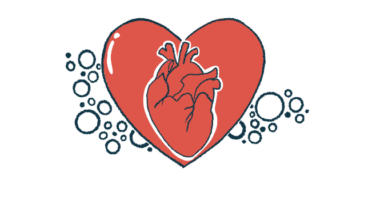1st Patient Dosed in Phase 2 Trial of Oral Cushing’s Treatment SPI-62
ACTH-dependent forms of Cushing’s are target for oral Sparrow therapy

The first participant has been dosed in a Phase 2 clinical trial testing SPI-62 as a treatment for people with ACTH-dependent forms of Cushing’s syndrome, including Cushing’s disease.
That’s according to developer Sparrow Pharmaceuticals, which is evaluating the safety and effectiveness of the oral therapy.
“Dosing our first patient in this phase 2 trial is an important milestone in our clinical development process of SPI-62,” Frank Czerwiec, MD, PhD, Sparrow’s chief medical officer, said in a press release.
The trial, called RESCUE (NCT05307328), is now enrolling participants at more than a half-dozen sites in the U.S. Additional sites are expected to be opened across the U.S. and in Romania and Bulgaria.
The study is open to male and nonmenstruating female patients, ages 18 and older, with a documented diagnosis of ACTH-dependent Cushing’s syndrome.
Altogether, the trial plans to enroll approximately 26 patients. After screening and baseline assessments, participants will be randomly assigned to receive either SPI-62 or a placebo, taken by mouth, once per day, for 12 weeks, or about three months.
The main goals of the study are to assess the therapy candidate’s safety, efficacy, and pharmacological effects. That includes measuring cortisol’s activation in key target tissues like the liver, which is expected to be inhibited by SPI-62.
The treatment’s effect on other features associated with Cushing’s — such as high blood pressure, high blood sugar levels, body fat content, mood, sleep, and muscle strength — also will be assessed.
Cushing’s disease is caused by a tumor in the brain’s pituitary gland that produces and releases a signaling molecule called adrenocorticotropic hormone, or ACTH. The increase in ACTH leads to the excessive production of the stress hormone cortisol, which ultimately causes Cushing’s symptoms.
SPI-62 is designed to reduce cortisol activity by blocking a protein called HSD-1, which controls the conversion of an inactive version of cortisol into the active form of the hormone. This biochemical strategy “would be the first new mechanism of action in decades to treat Cushing’s,” according to Sparrow.
In preclinical studies, the treatment has shown the ability to block HSD-1 in the brain, fat tissue, and liver — all tissues and organs that are particularly affected by cortisol and tend to be associated with issues in Cushing’s.
“Cushing’s is a devastating rare disease with debilitating morbidities such as depression, bone loss, and diabetes, and if left untreated, high levels of mortality. Current treatments have limited efficacy or serious side effects, so there is a pressing need for new treatments that help these patients mitigate the effects of hypercortisolism,” Czerwiec said.







